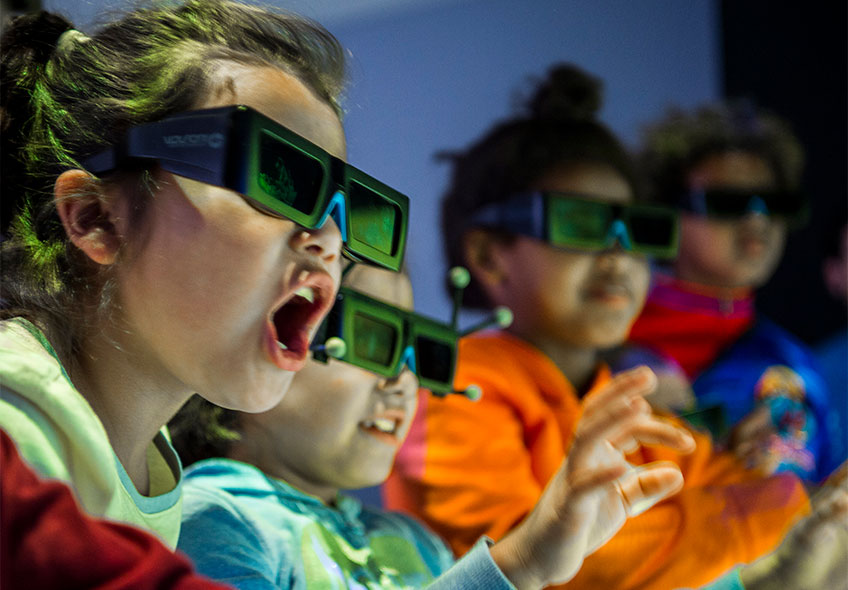Market and Workforce Development
NREL's extensive market and workforce development work, and international hydropower studies help move hydropower development forward.

Pathways to Commercialization
The hydropower prize portfolio, led by NREL, aims to engage the innovator community on a range of new solutions for hydropower development, including standard and modular hydropower components as well as utilization of advanced manufacturing for hydropower.
The goal of every prize is to catalyze new solutions, designs, and strategies that help accelerate pumped storage hydropower and hydropower development. NREL leads and actively collaborates with competitors and other national laboratories to help the development of ideas into viable business concepts. The NREL-led hydropower prize portfolio is expanding and includes the following challenges.
Advanced manufacturing is revolutionizing the way products are designed and built for countless industries by lowering costs, improving designs, and reducing production timelines.
The Innovations in Advanced Manufacturing for Hydropower (I AM Hydro) Prize, now closed, aimed to dramatically lower costs of hydropower components and systems design by leveraging advancements in manufacturing and material. I AM Hydro innovators competed for up to $175,000 in cash prizes and helped support the hydropower industry using the ingenuity of advanced manufacturing.
The Groundbreaking Hydro Prize, now closed, encouraged the development of new ideas to cut the costs, timelines, and risks associated with hydropower development. This competition challenged innovators to come up with new solutions to support hydropower project development by starting at square one: the foundation. In April 2021, two teams were selected as winners to share a cash pool of $75,000.
The Fish Protection Prize, now closed, sought new solutions, designs, and strategies to prevent fish from swimming into water infrastructure, such as water diversions and pipes and intakes at hydropower dams. Participants submitted innovative ideas to advance fish exclusion technology. Three finalists were selected as Grand Prize winners and shared a prize pool of $700,000.
The Furthering Advancements to Shorten Time (FAST) Commissioning for Pumped Storage Hydropower Prize, now closed, aimed to reduce the time, cost, and risk required to commission pumped storage hydropower (PSH) projects—factors that have kept new PSH projects out of the market in recent decades.
Contact
International Hydropower
Aging infrastructure, growth in renewable generation, and competing demands for water due to population growth and extreme events are catalyzing greater interest in the reliability, resilience, risks, and maximum value of hydropower and pumped hydro storage systems.
NREL helps countries worldwide address these challenges and uncertainties through novel technologies, modeling, analysis, and integrated strategies to inform operation, planning, project development, and policy decisions that address the tradeoffs and synergies between energy, water, and land.
Contact
Workforce Development
NREL has a long track record of addressing workforce development needs across the renewable energy spectrum.
We have created tools, such as the Jobs and Economic Impact Models, to assess the project-specific economic impacts and long-term workforce needs of the hydropower and marine energy industries.
NREL also leverages experience in engaging with stakeholder communities to understand barriers to technology adoption and identify issues and drivers, provide feedback to the research and development community, clarify misperceptions, and facilitate market adoption.
This work includes efforts, such as the Hydropower Workforce Development Report and a marine energy cable exclusion assessment, to determine potential impacts on marine development from undersea telecommunications cables.
Contact
STEM Education
Although hydropower is a mainstay of the U.S. power sector, the limited number of hydropower education programs and increased attrition from an aging workforce are creating unprecedented challenges in the recruitment and retention of hydropower workers. The nascency and limited awareness of the marine energy industry are posing similar challenges to the marine energy workforce pipeline.
NREL is working to address this gap by developing educational programs and improving program accessibility (across high school through postgraduate levels) and increasing awareness of marine energy and hydropower as a renewable energy career (via secondary school, vocational and apprenticeship programs, and undergraduate curricula).
NREL, along with the U.S. Department of Energy Water Power Technologies Office, is developing a learning platform called the Renewable Energy Discovery (REDi) Island. This interactive, educational, three-dimensional virtual island powered by renewable energy features visuals (such as videos) of working water power technologies.
Contact
Share

